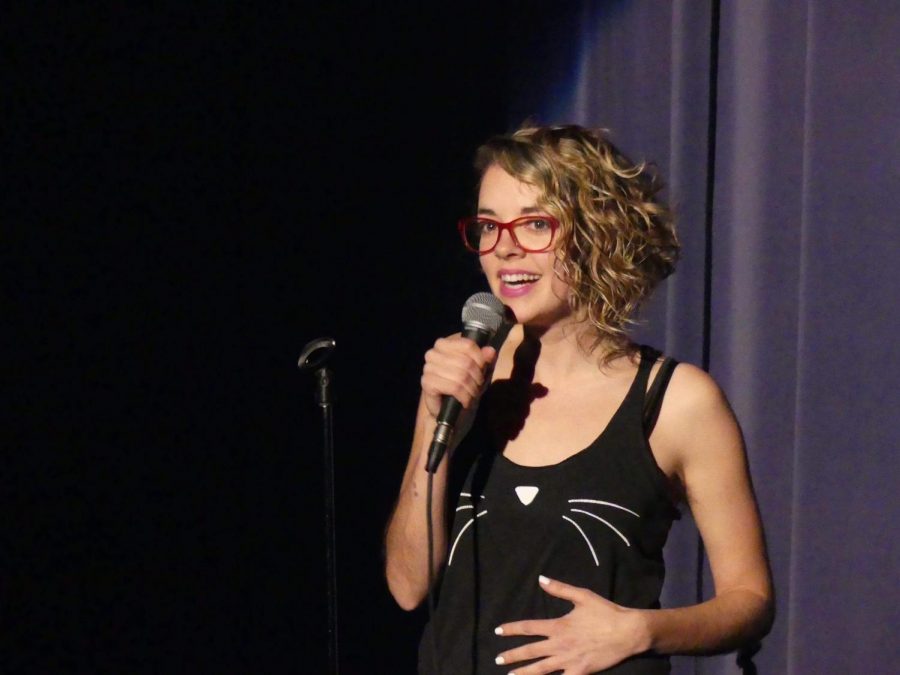Capital Storytelling will feature real-life stories from members of the Sac State community
Will Coburn – The State Hornet
Shahera Hyatt performs a comedy routine at Best of San Francisco Stand Up at the Hobart in San Francisco on Friday, March 30, 2018. Hyatt will be one of six performers on stage at Capital Storytelling on April 26.
April 17, 2018
Sacramento State has partnered with the Verge Center for the Arts to present Capital Storytelling, an event featuring personal, real-life stories from members of the community.
At the event, six performers will tell true stories from their lives alongside certified deaf interpreters. Performers include Sac State students, alumni, faculty and other community members.
The event is happening Thursday, April 26 from 7-9 p.m. at the Verge Center for the Arts on the corner of 7th Street and S Street.
Admission is $7 for the public and $3 for Sac State students with a valid OneCard. Tickets can be purchased at the door, and food and drinks will be provided.
Capital Storytelling is organized by Sac State professor Lisa Cantrell, who has hosted a series of workshops ahead of the event, where participants learned how to hone stories from their life into engaging live performances. Participants also learned how to work with certified deaf interpreters.
While many American Sign Language interpreters are hearing, and ASL isn’t their native language in most cases, certified deaf interpreters are either deaf or hard of hearing — and sign language is typically their first language.
The deaf interpreters have been given a transcript of the stories that they can work with.
“This is something I’m still learning about, but they’re two different languages,” Cantrell said. “Most sign translators interpret content, but when you’re doing something as subtle as storytelling or improv, you need to work with a deaf translator to bring that context.”
Cantrell said there’s an important aspect to live storytelling that other mediums don’t have.
“When you learn how to tell stories you learn how to do them for everything,” Cantrell said. “Bringing people into a physical space and hearing stories is how you foster a community.”
One of the storytellers for the upcoming event, Shahera Hyatt, is a Sac State alumna and no stranger to performing on stage — she’s a veteran of the Sacramento comedy scene.
Hyatt explained how she chose which story to tell.
“I was interested in something that would be really poignant, and went with something that was really transformative to me,” she said.
Hyatt discussed the time she brought a child who had been sleeping outside into her home.
“This one is going to be pretty earnest and intellectual,” she said. “This is going to me more like what I do for work.”
Hyatt is a social worker for the California Homeless Youth Project.
“In my comedy I can get into social justice, but it’s more of a subtext,” she said. “Here it’s going to come more forward.”
The next series of workshops is planned for the fall, and Cantrell hopes to eventually host Capital Storytelling three to four times a year.





























































































































